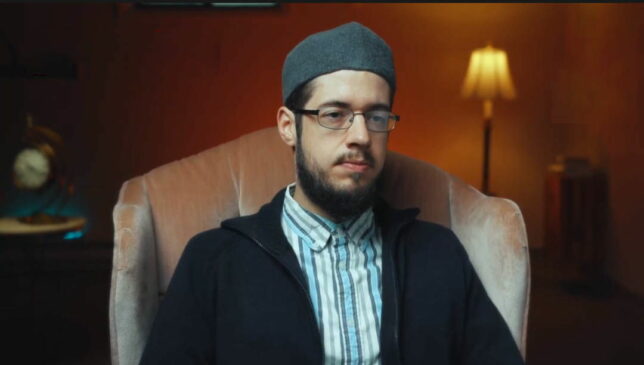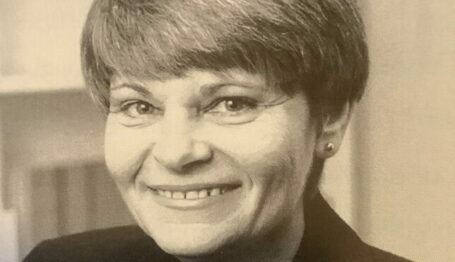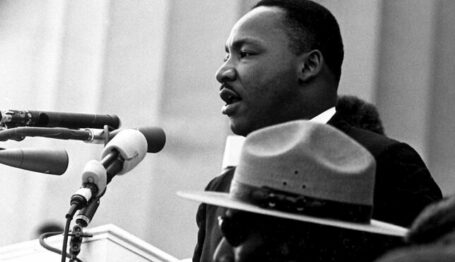Commentary
The Muslim-American Community Must Denounce Hamas
 In a video posted on October 10, 2023, New York State Imam Tom Facchine said, "We are with the Palestinian resistance 100%, no ifs no ands, no buts, no equivocations, no apologies, no condemnations." Credit: MEMRI/UTICA Masjid/YouTube.
In a video posted on October 10, 2023, New York State Imam Tom Facchine said, "We are with the Palestinian resistance 100%, no ifs no ands, no buts, no equivocations, no apologies, no condemnations." Credit: MEMRI/UTICA Masjid/YouTube.

After the 9/11 terrorist attacks, the Muslim-American community was challenged to condemn the attacks and rebut Al-Qaeda’s justifications. They did. Today, the Muslim-American community must be pushed to similarly condemn the October 7 attacks and to rebut Hamas.
The vast majority of Islamic institutions at home and abroad rejected Al-Qaeda and the Islamic State and made an Islam-based case against them. Although both terrorist groups still posed a significant threat, Muslims’ delegitimization of them blunted their ability to win followers and grow beyond their statuses as fringe movements. Additionally, Muslims’ rejections of these groups helped combat anti-Muslim sentiment.
There has yet to be a similar effort against Hamas, Palestinian Islamic Jihad, and similar Palestinian and Lebanese terrorist organizations. The result is that these terrorist groups are winning their ideological war in the U.S.
A recent poll of Muslim-Americans showed that 28 percent strongly agree that Hamas’s attacks are justified. Another 29 percent somewhat agree. That means that a solid majority—57 percent—support Hamas. Another finding is that 31 percent have a favorable view of Iranian Supreme Leader Khamenei, whose regime is the biggest state sponsor of terrorism in the world.
Is it too much to ask for Muslim-American leaders to help protect innocent life by denouncing Hamas and its jaw-droppingly barbaric attacks? They are the ones in the best position to lessen Hamas’s appeal. Doesn’t’ an obligation exist to do so?
The Hamas Monopoly on Opinion
On the contrary, my exhaustive search for influential Muslim opponents of Hamas yielded barely a trace. I found only a single imam who denounced Hamas.
The biggest Muslim-American organizations and leaders have either endorsed Hamas or have dodged the topic, carefully dodging any mention of Hamas while fixating only on grievances against Israel.
Only one small organization, the American-Islamic Forum for Democracy led by congressional candidate Dr. Zuhdi Jasser, fully condemned Hamas and supported Israel’s right to defend itself. The only major Muslim-American organization to respond to Hamas’s attacks by explicitly stating that it stands against Hamas’s targeting of civilians is the Muslim Public Affairs Council, which it did while blaming Israel for the attacks.
Since October 7, the Middle East Media Research Institute (MEMRI), which tracks Islamist extremist preaching in the West, has found pro-Hamas and wildly anti-Semitic preaching in mosques in California, Florida, Indiana, Washington State, Texas, New Jersey, Maryland, Michigan, Colorado, New York, and the list goes on and on.
At the Colorado Muslims Community Center, the imam taught children that Jews are fundamentally untrustworthy “except for a couple of them.” Other examples of child radicalization have been found in recent years in Texas at a mosque that is loyal to the Iranian regime and in Philadelphia where children sang songs and read poetry exalting “martyrdom” for the Palestinian cause and beheading their enemies.
These infractions are just the tip of the iceberg. With an estimated 3,000 mosques in the U.S., groups with limited resources like MEMRI can only monitor a fraction of the sermons posted online and barely any of the offline preaching.
It will be difficult to convince the Muslim-American community’s leadership to ostracize Hamas, Palestinian Islamic Jihad and other anti-Israel terrorist groups because the most influential organizations were founded by followers of the Muslim Brotherhood, the parent organization of Hamas, and a Southeast Asian Islamist extremist movement called Jammat-e-Islami.
The leadership that is positioned to delegitimize Hamas has historically supported the group, proliferated various extremist beliefs, and taught that Muslims must pursue the elimination of Israel. It’s not surprising that so many Muslim-Americans agree with Hamas when Hamas’s ideas appear to be the only ones presented.
Hamas and the broader Islamist extremist ideology have a near-monopoly on opinion-shaping in the Middle East and in the West. Although Hamas presents itself as the champion of the Palestinian cause, the cause is impeded by genocidal terrorist organizations and the mainstream acceptance of the belief that Israel can and must be destroyed.
Seeds for Peace
Muslim-Americans who reject Hamas and the like as accurate representations of their faith and their community and who accept a two-state solution can break the peace-destroyers’ holds on hearts and minds. However, this can only be done with fresh blood in current institutions that leads them in a new direction and with the appearance of new organizations and influencers.
To put it another way, Hamas and its associated beliefs must go out of style.
If this happens in the West, the Muslim communities’ ideas will seep into the Middle East and the broader Muslim world. The seeds for better leadership, including among Palestinians, can be sewn.
But it all starts with holding the pro-Hamas infrastructure accountable for the terrorist group’s popularity.



